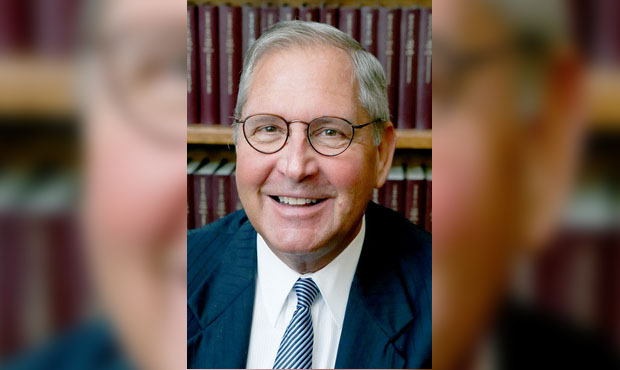Letter to the Editor: The Texas State Bar is Committed to Conducting Fair Elections
The State Bar of Texas is fully committed to conducting fair elections. That means all president-elect candidates—whether they are nominated by the Board of Directors or certified by petition—deserve a level playing field and the same opportunities to campaign.
February 08, 2018 at 02:47 PM
3 minute read

The State Bar of Texas is fully committed to conducting fair elections. That means all president-elect candidates—whether they are nominated by the Board of Directors or certified by petition—deserve a level playing field and the same opportunities to campaign.
A recent letter to the editor asserted there was no valid reason for the board's recent vote to add a 180-day expiration date on petition signatures. I want to assure our members that the board's action was carefully considered and driven only by a commitment to fairness.
The State Bar Act provides two ways for members to appear on the ballot as a president-elect candidate: by board nomination or by petition. Those seeking candidacy by petition typically start gathering signatures—in effect, campaigning—by late August, which is five months before the State Bar board has historically approved its nominees in late January.
This year, despite the best efforts of the board's Nominations and Elections Subcommittee, the State Bar could find no one willing to jump into the race in late January against Lisa Blue and Randy Sorrels—who both began gathering petition signatures months earlier and were thus perceived to have an overwhelming advantage. As a result, the subcommittee nominated Ms. Blue and Mr. Sorrels as candidates, and the board approved their nominations on January 26.
The board was faced with how to address this imbalance in future elections to ensure both pathways to candidacy remain viable. At our January meeting, we took a number of steps in this direction. The board added the 180-day expiration date on petition signatures—a provision that matches the law governing petitions in other state elections. The board also decided to approve its nominees four months earlier—in September instead of January—starting with the 2019 election process.
Taken together, these changes will ensure that the campaign periods are roughly equal for all president-elect candidates, whether they are nominated by the board or certified through petition. In the same spirit, the board also voted to relax or remove many restrictions on campaigning to ensure that candidates for president-elect and district director could freely present their views.
The State Bar board is made up of 46 voting members. Forty are lawyers who are elected from districts across Texas or appointed to represent the interests of their fellow lawyers. Six are public members appointed by the Supreme Court and confirmed by the Senate. Although we often disagree on issues, all of us are deeply committed to serving the legal profession, carefully weighing the issues before us, and doing what we believe is right. Those commitments will continue to guide us as we work to ensure fairness in State Bar elections.
Sincerely,
Tom Vick
President, State Bar of Texas
This content has been archived. It is available through our partners, LexisNexis® and Bloomberg Law.
To view this content, please continue to their sites.
Not a Lexis Subscriber?
Subscribe Now
Not a Bloomberg Law Subscriber?
Subscribe Now
NOT FOR REPRINT
© 2025 ALM Global, LLC, All Rights Reserved. Request academic re-use from www.copyright.com. All other uses, submit a request to [email protected]. For more information visit Asset & Logo Licensing.
You Might Like
View All

Putting Teenagers Behind the Wheel of Commercial Trucks Brings More Risk Than Reward


Trending Stories
- 1We the People?
- 2New York-Based Skadden Team Joins White & Case Group in Mexico City for Citigroup Demerger
- 3No Two Wildfires Alike: Lawyers Take Different Legal Strategies in California
- 4Poop-Themed Dog Toy OK as Parody, but Still Tarnished Jack Daniel’s Brand, Court Says
- 5Meet the New President of NY's Association of Trial Court Jurists
Who Got The Work
J. Brugh Lower of Gibbons has entered an appearance for industrial equipment supplier Devco Corporation in a pending trademark infringement lawsuit. The suit, accusing the defendant of selling knock-off Graco products, was filed Dec. 18 in New Jersey District Court by Rivkin Radler on behalf of Graco Inc. and Graco Minnesota. The case, assigned to U.S. District Judge Zahid N. Quraishi, is 3:24-cv-11294, Graco Inc. et al v. Devco Corporation.
Who Got The Work
Rebecca Maller-Stein and Kent A. Yalowitz of Arnold & Porter Kaye Scholer have entered their appearances for Hanaco Venture Capital and its executives, Lior Prosor and David Frankel, in a pending securities lawsuit. The action, filed on Dec. 24 in New York Southern District Court by Zell, Aron & Co. on behalf of Goldeneye Advisors, accuses the defendants of negligently and fraudulently managing the plaintiff's $1 million investment. The case, assigned to U.S. District Judge Vernon S. Broderick, is 1:24-cv-09918, Goldeneye Advisors, LLC v. Hanaco Venture Capital, Ltd. et al.
Who Got The Work
Attorneys from A&O Shearman has stepped in as defense counsel for Toronto-Dominion Bank and other defendants in a pending securities class action. The suit, filed Dec. 11 in New York Southern District Court by Bleichmar Fonti & Auld, accuses the defendants of concealing the bank's 'pervasive' deficiencies in regards to its compliance with the Bank Secrecy Act and the quality of its anti-money laundering controls. The case, assigned to U.S. District Judge Arun Subramanian, is 1:24-cv-09445, Gonzalez v. The Toronto-Dominion Bank et al.
Who Got The Work
Crown Castle International, a Pennsylvania company providing shared communications infrastructure, has turned to Luke D. Wolf of Gordon Rees Scully Mansukhani to fend off a pending breach-of-contract lawsuit. The court action, filed Nov. 25 in Michigan Eastern District Court by Hooper Hathaway PC on behalf of The Town Residences LLC, accuses Crown Castle of failing to transfer approximately $30,000 in utility payments from T-Mobile in breach of a roof-top lease and assignment agreement. The case, assigned to U.S. District Judge Susan K. Declercq, is 2:24-cv-13131, The Town Residences LLC v. T-Mobile US, Inc. et al.
Who Got The Work
Wilfred P. Coronato and Daniel M. Schwartz of McCarter & English have stepped in as defense counsel to Electrolux Home Products Inc. in a pending product liability lawsuit. The court action, filed Nov. 26 in New York Eastern District Court by Poulos Lopiccolo PC and Nagel Rice LLP on behalf of David Stern, alleges that the defendant's refrigerators’ drawers and shelving repeatedly break and fall apart within months after purchase. The case, assigned to U.S. District Judge Joan M. Azrack, is 2:24-cv-08204, Stern v. Electrolux Home Products, Inc.
Featured Firms
Law Offices of Gary Martin Hays & Associates, P.C.
(470) 294-1674
Law Offices of Mark E. Salomone
(857) 444-6468
Smith & Hassler
(713) 739-1250






